Pogrom at the Heart of Violence Against Eritreans Led by the West
Police inaction during attacks on events indicates systemic violence, akin to a 'pogrom.' Urgent resolution is imperative.

Amanuel Biedemariam Novemeber 11, 2023
The Eritrean diaspora across the Middle East, Israel, Europe, Australia, Canada, and the United States is an intrinsic part of the Eritrean people's identity and resilience. They have played a vital role in the lives of Eritreans, especially in supporting their families who endured the challenges of Western occupation and successive Ethiopian regimes.
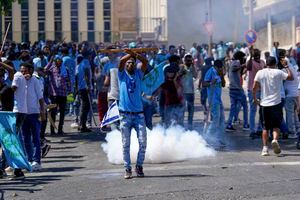
No matter where they settled, Eritreans in the diaspora remained unwavering pillars of strength for their communities. Over the past half-century, they have offered moral, financial, diplomatic, and political support to advocate for Eritrea's independence and the well-being of its people. They are undeniably the backbone of their society.
Eritreans started leaving their homeland in significant numbers in the 1970s, yet they carried with them the core principles and traditions of Eritrea that have sustained the nation. Their culture, clothing, and heritage accompanied them wherever they went.
A central aspect of their lives has been the annual Eritrean Festivals, which began in Bologna, Italy, in 1975. Eritreans worldwide organized these festivals, inviting Eritrean musicians, artists, and leaders to participate. These events served as networking opportunities, family reunions, educational forums, and platforms to stay informed about developments in their homeland and globally.
From 1991, following Eritrea's independence, these festivals, alongside national holidays, became a fundamental part of Eritrean life, celebrated both in Eritrea and throughout the world.
Eritrean festivals and events are held in accordance with the law. Eritreans acquire the necessary permits and use them for the purposes they declare. Whether hosted in state parks or party halls, these festivals are open to the public. While they may have yet to gain international recognition on the scale of events like Cinco de Mayo, Polaski Festivals, or St. Patrick's Day, widely celebrated in the Western world, Eritrean festivals are increasingly gaining global attention and recognition.
Eritrea's growing prominence has yet to escape the notice of its critics, including the TPLF, disgruntled individuals, Western advocates of regime change, and certain Western nations determined to change Eritrea's leadership. These parties strongly oppose the idea of African nations asserting their national identity and view Eritrea as a potential disruptor to their hegemonic interests, making it a negative example in their eyes.

The Biden administration assumed office in 2020, and in the aftermath of disruptions caused by the Trump administration to the agendas initiated during President Obama's tenure, it took a lot of work to reestablish a strategy concerning Eritrea. It took over three years to fully implement their intended plans. The State Department invested significant effort in bringing Prime Minister Abiy Ahmed on board.
Meanwhile, the TPLF and its international supporters were actively working to disrupt Eritrean festivals as a strategic maneuver. They showed little concern for the well-being of families, mothers, fathers, and children who used these lawful events as opportunities to come together and celebrate their culture. Instead, they targeted them as supporters of an oppressive regime in Eritrea. Notably, individuals claiming to be Eritreans but having ties to Tigray were involved in the attacks on Eritrean festivals in Europe, a situation that had persisted for years.
In 2023, the assaults on Eritrean gatherings and national events reached unprecedented levels, escalating into violent attacks with the intent of causing harm to Eritreans and fostering animosity against Eritrean communities in Europe, Australia, Canada, Israel, and the United States. These attacks involved brutal acts that resulted in fatalities in certain instances, causing injuries to the elderly, disrupting children's activities on soccer fields, and targeting innocent Eritreans without provocation.
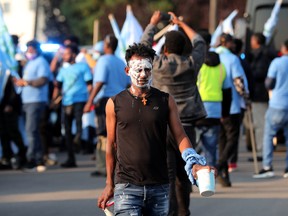
Even more alarming is the fact that Eritreans had alerted the authorities to the threats before the incidents. Regrettably, instead of safeguarding the Eritrean community from these threats, authorities in these countries granted permits to individuals who claimed to be peaceful demonstrators but arrived armed with knives and other potential weapons, positioning themselves less than 500 meters away from the events.
These so-called demonstrators were not peaceful but rather individuals driven by a violent agenda to disrupt the events forcibly by setting tents on fire, vandalizing venues, and causing chaos in the neighborhoods and local businesses. What's even more concerning is that these attacks occurred in various Western countries and Israel. Even worse, many of these attacks took place in the presence of law enforcement, who, in most cases, failed to protect the innocent Eritreans.
A pogrom is a term historically used to describe organized, violent attacks, persecution, and mass killings, typically targeting ethnic, religious, or social groups, especially minority communities. Pogroms have been particularly associated with anti-Semitic violence in Eastern Europe in the late 19th and early 20th centuries. These attacks often involved the destruction of property, physical harm, and sometimes even murder.
The term "pogrom" originated in Russia and is derived from a Russian word meaning "to wreak havoc" or "to demolish violently." While it historically referred to anti-Jewish violence in Russia, it has since been used more broadly to describe similar acts of violence against various minority groups in different parts of the world. Pogroms are widely condemned as acts of hatred and discrimination, and efforts have been made to prevent and address such violence.
In his report on August 8th, The Taylor Report characterized the assault on Eritrean festival attendees as a textbook example of a pogrom. Mr. Taylor emphasized that the city of Toronto, the police, and all parties involved should issue an apology to the Eritrean Festival organizers.
The Taylor report provided a comprehensive account of the attack, including the destruction of tents and the targeted violence against individuals. He recounted an alarming incident where an elderly individual was repeatedly assaulted while lying on the ground, resulting in severe injuries that left him in a coma due to a head injury that required significant stitches.
Despite prior warnings, the Toronto Eritrean Festival fell victim to the actions of thugs. The police response was delayed, their intervention was limited, and the media scrutinized the victims rather than the perpetrators.
These trends are consistent in various Western cities, including Israel, the United States, London, Sweden, Canada, Norway, and Germany. Eritrean lives were placed in jeopardy because these cities granted permits to violent individuals, while the police often remained passive, witnessing Eritreans being subjected to assaults.
Eritrean communities believe that the authorities conspired against them due to a reluctance to support the aspirations of black individuals in their countries who seek to assert their national identity and serve as examples for other Africans. This scheme appeared to attempt to disrupt long-standing Eritrean festivals that have been integral to these communities for many decades.

What can the Eritrean Community Do?
Eritreans facing challenges and discrimination in various countries can take several actions to address their concerns and work towards a better future:
- Community Advocacy: Eritrean communities can form advocacy groups or associations to raise awareness about their issues, promote cultural understanding, and engage with local authorities to address discrimination and violence.
- Legal Support: Seek legal assistance from organizations or attorneys specializing in human rights and discrimination cases. This can help individuals pursue legal action against those responsible for attacks or discrimination.
- Documentation and Reporting: Encourage individuals to document any incidents of discrimination or violence and report them to local authorities and human rights organizations.
- Peaceful Protests: Organize peaceful demonstrations and protests to draw attention to the issues and demand accountability from those responsible for the attacks.
Book Your Travels with Select Concierge Travel Agency
Eritreans must seek constructive and lawful means to address their concerns while working to promote a more inclusive and accepting society in their host countries. Collaboration with other communities and international support can be valuable in these efforts.
Conclusion and Notable Points: The absence of significant police intervention during the attacks on festivals and events further accentuates the severity of these incidents, qualifying them as more than isolated violence. This lack of proactive measures by law enforcement highlights the systematic and organized nature of these assaults, resembling what can be termed a 'pogrom.' The authorities' failure to effectively address these attacks suggests a more profound, systemic issue that requires immediate attention and resolution.
For those who find value in what they read and desire additional content, we encourage you to subscribe and contribute through donations to support further content creation.
Contact us: Aman@Nefasit.com
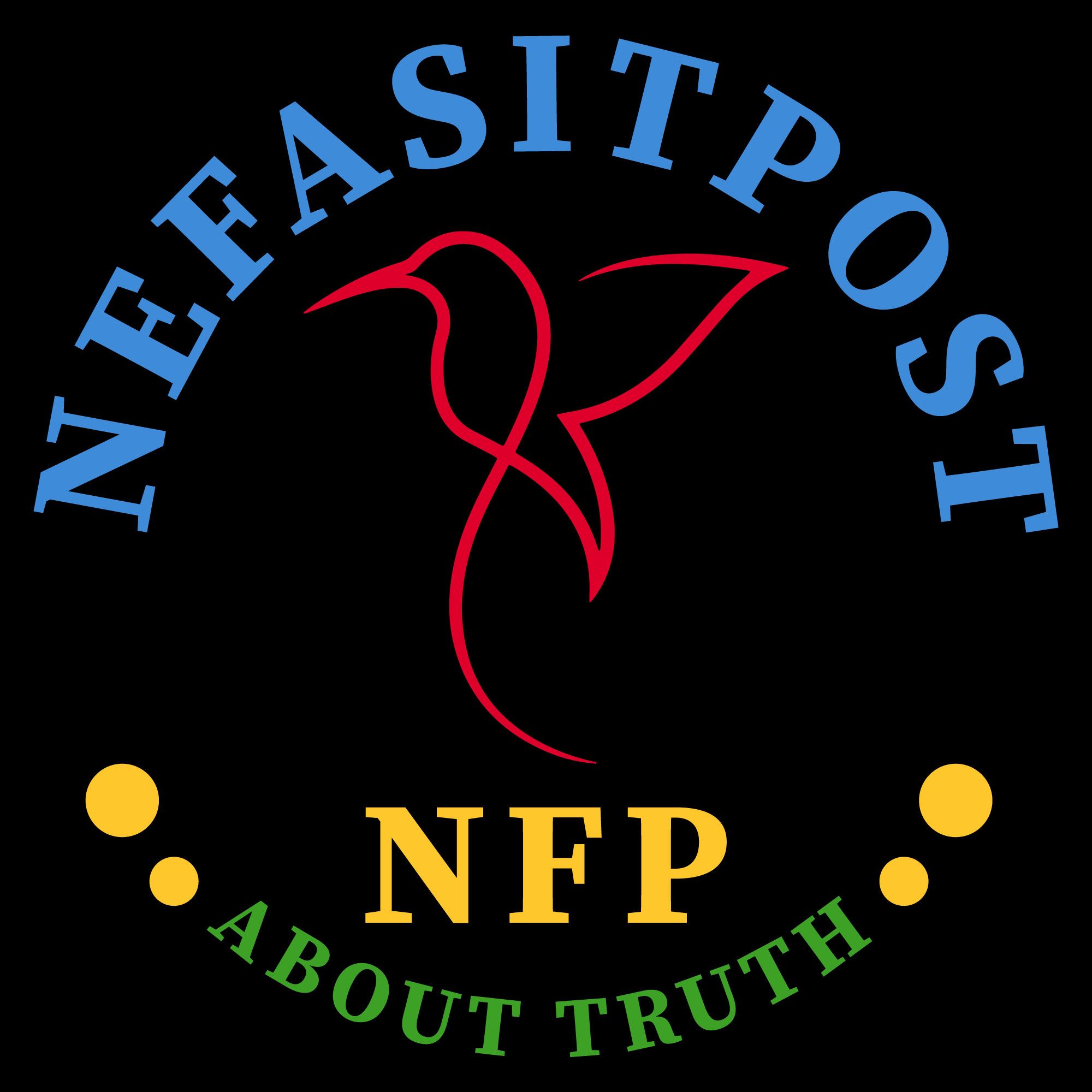
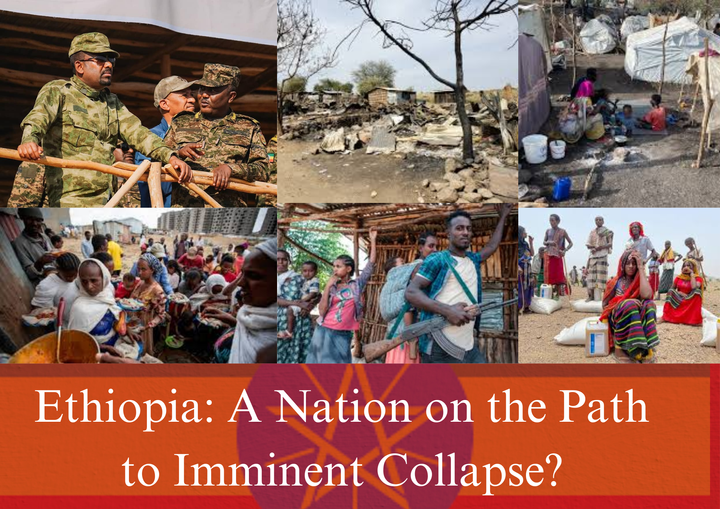
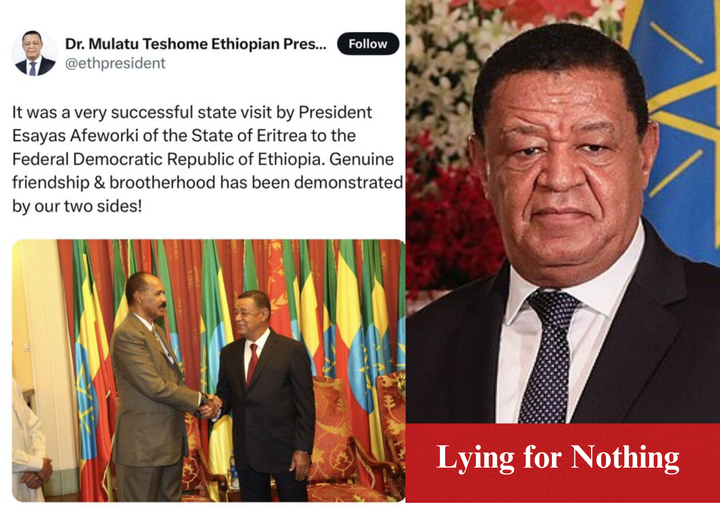
Comments ()